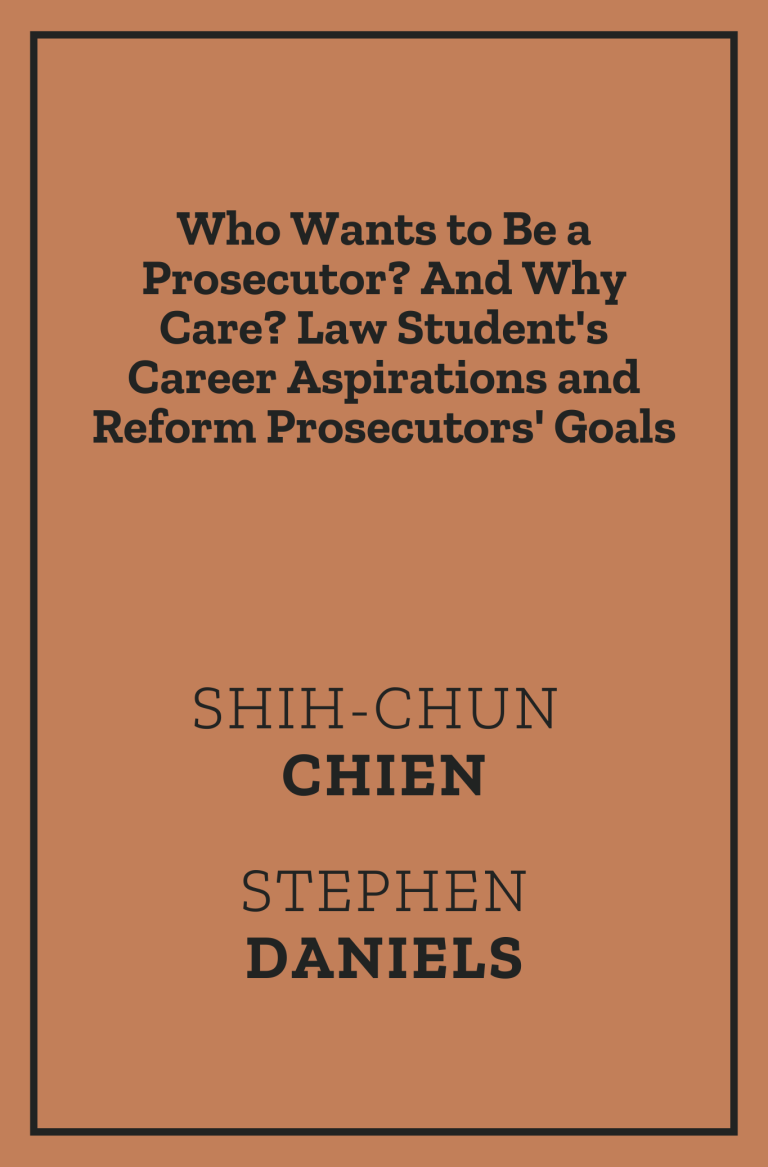From Howard Law Journal
Often called “progressive” or “reform” prosecutors, a number of reform-minded prosecutors have been elected recently across the United States—promising a distinctive vision of criminal justice and signaling that their role will be more attuned to issues of race and equity than “law and order.” Furthering this vision requires dramatic changes to the working cultures—the norms, practices, and even personnel—of their offices. Diversity plays a major role.
One central challenge is identifying, attracting, and hiring newly minted lawyers who can, over time, be socialized into and sustain a changing organizational culture.
Stephen Daniels and Shin-Chun Chien argue that although the pool of candidates interested in criminal law has remained relatively small over the past years, reform prosecutors can expand the pool by adopting strategic approaches to encourage minority students to join the prosecution and reaching out to aspiring public defenders. The empirical findings further suggest that law schools have a more prominent role in the success of criminal justice reforms through the type of students they accept and the experiential learning opportunities they offer

